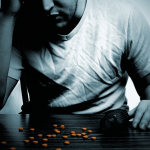Addiction makes you feel trapped – like substances have invaded your life and taken control, their tendrils wrapping around every aspect of your days. You want nothing more than to break free, but each attempt to cut back or quit on your own has failed. Rock bottom looks close. Still, within you burns the last dying embers of hope, hope that your life could mean more than chasing the next high. When the pain of staying on this dark path finally outweighs the fear of change, you will reach a turning point. In that pivotal moment, staring down years wasted to addiction, you find the courage to admit you have lost power over it.
Seeking the Guidance of Professionals
Getting clean is too enormous a task to undergo alone. Addiction’s grasp runs deep – both psychologically and physically. If you are suffering from substance abuse, you need support from those specifically trained to treat substance abuse. Outpatient programs allow you to attend counseling and meetings while living at home. Inpatient facilities like residential recovery centers encompass intensive 24/7 care under medical supervision. No matter what type you choose, the staff intimately understands the complex underpinnings of dependency.
Importance of Tailored Treatment Plans
Quality treatment centers develop customized plans addressing your unique situation. For example, certain holistic approaches like equine therapy, meditation, and acupuncture may resonate. Faith-based programs integrate religious values for added perspective. If other mental health factors contribute to your substance issues, dual diagnosis treatment simultaneously handles both. Gender-specific programs focus on helping men and women overcome environment-driven challenges. No predetermined formula works for everyone. An individualized roadmap keeps you engaged while promoting self-awareness and sustainable sobriety.
Counseling and Peer Support
Whether one-on-one, family-based,, or in a group setting, counseling provides professional support. Compassionate therapists help uncover trigger events, thought patterns, and behaviors that enable substance abuse. Peers in your shoes offer living proof that life exists after addiction. They model essential recovery skills like asking for help, implementing healthy coping mechanisms, and finding constructive use of free time. You gain hope that if others can do it, so can you.
Developing Healthy Coping Strategies
Once back in the day-to-day grind, even small frustrations or celebratory events can spur cravings. Treatment teaches alternative coping strategies to avoid relapse in triggering moments. This means finding new rewards, like exercising, calling a loved one or journaling feelings. Relaxation techniques such as deep breathing combat anxiety or anger. Listing long-term goals constantly reminds why sobriety matters. Support groups provide ongoing camaraderie. Implementing such mindfulness practices retrains your brain to healthfully deal with obstacles that once sent you straight for substances.
The Addiction Never Truly Disappears
In recovery, you often take things one day at a time for good reason. A lifetime disorder like addiction never fully disappears, no matter how long you are sober. Slips occur occasionally, even years later. Treatment centers caution against harsh self-judgment during periodic lapses. Instead reflect on what environmental or emotional factors enabled it to thoughtfully prevent next time. Progress is not linear. Today’s stumble doesn’t erase the hard work you have put in. Renew your commitment to positive coping strategies and call on your support system. Growth comes through perseverance.
If addiction feels inescapable, take heart – you still hold the power to create lasting change. But first comes accepting you cannot walk this road alone. Quality treatment centers provide professional guidance, community and crucial skills for overcoming substance abuse once and for all. The journey will not always be smooth, but you will emerge healthier and more self-aware than ever before.






